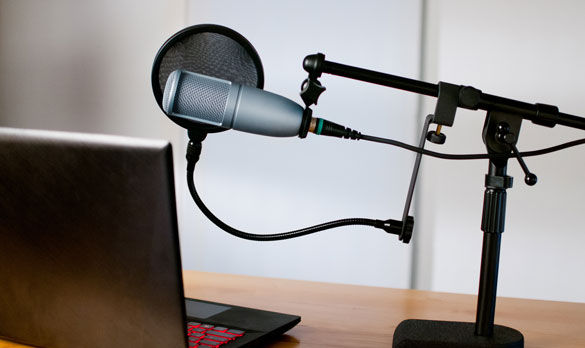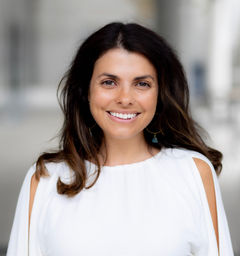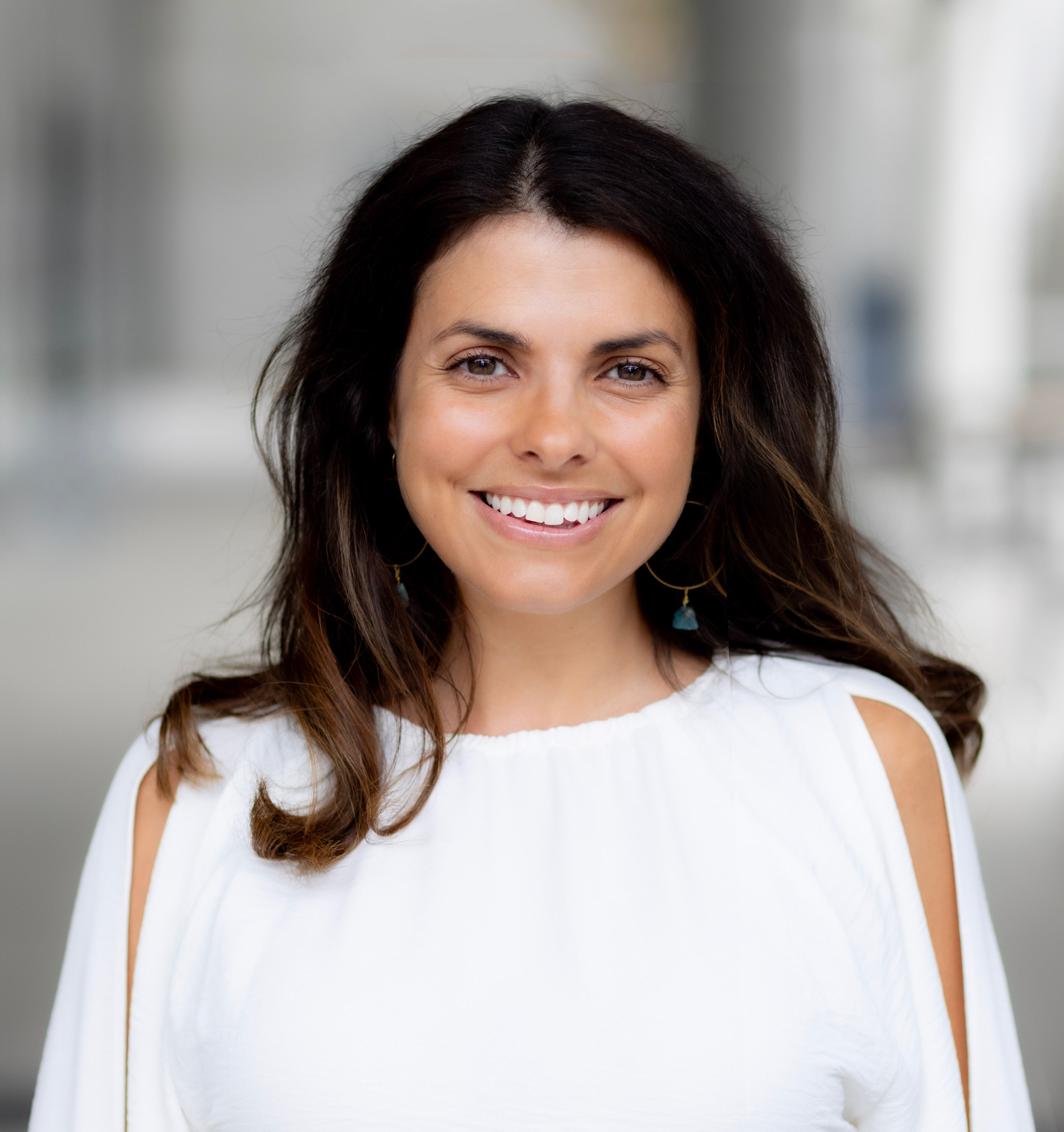
While some may argue that the evolution of technology has been counterproductive to the effort to empower people to live healthier, happier lives, in reality, it could be considered a key part of the solution.
For the growing group of passionate fitness and wellness professionals around the world, there exists an opportunity to amplify our unique messages, perspectives, experiences and insights—to inspire and motivate individuals to improved physical health and fitness, and enhanced emotional, mental and spiritual well-being through quality education, kind words and space for mindful exploration in all areas of life. This ability to reach individuals across both communities and continents is made possible through a simple and relatively familiar information-sharing format we’ve come to know as podcasts.
“As a yoga teacher and a life coach, I have received so many life-changing teachings—valuable knowledge, inspiration and guidance—and I felt compelled to share and called to speak,” says Shannon Algeo, co-host of SoulFeed. “Podcasting seemed like such a beautiful way to speak my truth and to share the teachings I’ve received with the world. It’s a free platform for listeners, and a relatively easy and low-cost way to get your message out to the masses.”
But before you reach for the record button, consider the insight well-established podcast hosts have to offer that will enable you to personally navigate this new arena with greater clarity and confidence.
 Hearing Is Believing
Hearing Is Believing
To experience the experts in action, consider adding the following podcasts to your playlist:
Wellness Force Radio: Providing practical solutions to transform your physical and emotional well-being, each week this show features global experts in behavior change and wellness technology.
The Chalene Show: From spirituality and body acceptance to goal setting and relationships, this show covers everything related to living a happier, fuller, more simplified life.
SoulFeed: With six new episodes per month ranging from motivational interviews with world-renowned spiritual teachers to uplifting life coaching sessions centered on shifting your perspective, this podcast offers inspiration to take charge of your life.
Tonos Radio: Stemming from the Greek word for tension, this podcast takes the fitness industry head-on, covering an assortment of simple and complex topics and providing listeners with practical tips they can use to navigate everyday health, fitness and nutrition decisions.
Build Your Tribe: This business-focused podcast features expert interviews and offers proven strategies for professionals to help create a meaningful presence online and to cultivate a powerful virtual community.
All About Fitness: With a focus on physical activity, this podcast features interviews with leading industry experts who offer practical, science-based information on the most effective approaches to exercise.
Fitness + Technology Podcast: Produced weekly by the Fitness Industry Technology Council, this show offers tools, insight and inspiration as to how technology can help club owners, operators and fitness professionals grow their businesses.
Know Your “Why”
Establishing a clear vision for your podcast begins with an honest understanding of your personal intentions. For Josh Trent, host of Wellness Force Radio, his purpose became clear following a decade of training clients one-on-one.
“After more than 10,000 hours on the floor, I was starting to get burned out trading an hour of time for an hour of my service. Yet I still wanted to help people get healthy,” shares Trent. “In June 2015 when I started Wellness Force Radio, I entered into a new layer of purpose, with the intention behind the show being to help individuals discover connections between emotions and healthy habits, and to ultimately empower greater wellness for a million people.”
While reaching a million people may seem like a lofty goal to some, for Trent that is precisely what makes it such a pivotal part of the process in continuing to fuel his own personal betterment.
“What’s most important when going into any endeavor [like starting your own podcast] is having a ‘why that makes you cry,’” says Trent. “The bigger the goal, the bigger the obstacles you face. The ‘why’ has to be so valuable and meaningful to you that it can help to circumvent hurdles you encounter along the way.”
For Algeo and his co-host Alex Kip, the intention behind Soulfeed was to create a space for listeners to download inspiration for free, but Algeo’s personal why offers even greater insight into the true purpose behind the transformative podcast.
“My personal ‘why’ is that I am a light that is here to illuminate the power that already exists in all human beings so that there can be peace on the planet,” shares Algeo. “This podcast is a way for me to use technology to share high-vibe, inspired conversations with people, enabling them to join in and listen anywhere and anytime.”
No matter what exactly it is that you feel compelled to share with the world, Algeo recommends getting crystal clear on your why and the true purpose behind what you intend to offer, as the energy of your podcast is determined well before you release your first episode, and it’s something that is palpable to listeners.
Keep It Real
The ability for listeners to hear your voice from afar and to tap in to what you are truly most passionate about offers a unique opportunity to forge a deeper connection. This can go a long way, not only in building your brand and growing your business, but more importantly, in making a lasting impact in the lives of the countless people you reach. As such, it’s imperative that your podcast serve as place for others to get to know the real you.
Simple Tips When Getting Started
- Keep your audience front of mind: From your cover art to the guests you invite on the show, consider your audience when making any decision related to your podcast, no matter how big or small. To better understand who you are speaking to and how your content can help, Algeo suggests thinking of your avatar (the individuals who he refers to as SoulWarriors on his show) as a version of yourself three to five years ago. Consider what types of guidance you could have benefited from then to get to where you are now.
- Don’t assume what people know (or want to know): One of the best ways to serve your podcast listeners is to ask what they would be interested in learning more about. As Jo notes, often the topics we as professionals assume are unimportant or that “everybody already knows” are exactly what people are interested in. When exploring a topic, instead of thinking you have to be the end-all-be-all authority on the matter, Johnson suggests taking the approach of sharing what you have learned through your own personal experiences and offering valuable insight that helps people to avoid making some of the same mistakes you have made in your own journey.
- Keep costs low early on: One of the benefits of starting a podcast is that you don’t need expensive equipment to get started. However, the area Johnson recommends spending a little bit of money on to save you time is having your podcasts professionally edited, utilizing a site such as Upwork to find freelancers who are willing to edit episodes for as low as several dollars per hour.
- Commit to your own development: As a podcast host, Trent stresses the importance of being committed to and invested in your own personal growth, from strengthening your interviewing skills to deepening your knowledge base in a particular topic area. Before launching your podcast, Johnson urges you to do your research, exploring key topics such as how many episodes to launch with, what category to be in, and how to promote your show. Given that podcasts are much like any other social-media platform, best practices tend to change quickly. As such, Johnson cautions prospective podcast hosts to ensure that the research you consume as part of your personal and professional development is up-to-date, and to look exclusively at what is current right now.
“I think you can just feel something about a person when you’re listening to their voice as opposed to reading a blog or seeing a highly edited video,” shares Chalene Johnson, New York Times best-selling author and lifestyle and business expert. “Make it your goal if you’re starting a podcast to have fun and to show us who you are. Talk to us like we are your friend, and care for us in the same way you would your best client.”
Johnson, who is the host of two top-ranked podcasts—The Chalene Show and Build Your Tribe—made the decision to expand her career into the world of podcasts based on her own personal experience as a long-time podcast listener and audio learner, learning from the likes of self-development experts such as Brian Tracy.
“Podcasts offer such an intimate experience, and learning in this way was so powerful for me personally that I wanted to provide the same thing for others, connecting with my tribe in the same way that I connected with the people I was learning from,” shares Johnson. “It has been a great way to show my “lifers” [the members of my tribe] my personality and also that we are the same. It’s allowed me to connect with people on a deeper emotional level.”
While the thought of putting yourself out there on a public platform might sound a bit scary, the more you are able to be honest, transparent and genuine in what you offer, the more impactful the information you share ultimately will be.
“Don’t be afraid to be vulnerable and to allow your personality to shine through,” suggests Sabrena Jo, ACE senior exercise scientist and co-host of Tonos Radio. “Allow listeners to ask questions and then be honest with your answers. It is way more interesting to learn about a person’s struggles and triumphs and all of the emotions that go along with those, rather than listen to a scripted narrative.”
“Recording the podcast is the highlight of our week, as we get to discuss things that we are passionate about and bounce them off one other,” notes Jo. “When we have differing views or opinions it makes for a great episode, and because our show started as a result of conversations we would have about things that we found ridiculous or awesome in health and fitness, there’s a lot of laughter, quips and camaraderie between us.”
Get Out of Your Own Way
Armed with your personal why and your unique personality and perspective, you have the key ingredients needed for a powerful podcast. Now all you have to do is get out of your own way.
“Everyone has a story inside of them, and the only reason that story is not coming out is because we are getting in our own way,” shares Trent. “The hardest part is just to allow success and growth to come, even when there might be discomfort and fear present.”
This is precisely what fitness educator and master trainer Pete McCall did in early 2016 when he decided to add a new role to his resume as host of All About Fitness.
“I started the podcast as a way to provide accurate information about how exercise works and to discuss the science of various forms of fitness, including information specific to the over-35 crowd, which is often underrepresented,” shares McCall. “As an educator, I have access to a wide variety of educated leaders, and I wanted to introduce these experts to the general public to help educate consumers and provide them with useful, relevant information to help increase their activity levels.”
While McCall might not be a stranger to speaking to large groups of people, the medium of podcasting was a new endeavor for him. He did not, however, let that slow him down.
“My best advice is to just do it and don’t be paralyzed by fear,” urges McCall. “Simply start and get better as you go. You never know unless you try, and it’s best to just get out there and try, knowing that you’ll make mistakes and that’s all part of the process.”
As health and fitness professionals, we are all in the business of serving others, and what people are craving most these days is real connection.
“People want authenticity, connection and vulnerability,” argues Trent. “The more a trainer, wellness professional or podcast host can be authentic, the more they are going to successfully satisfy this hunger that people have. Although technology helps us to scale our offerings, it takes the willingness and bravery of people to have these powerful conversations.”
If you find that voices of limitation and fear begin to fill your mind as you consider starting your own podcast, rest assured that there is a reason you are being called to share.
“Trust that we need your voice, and that people will resonate with your unique message and tone of voice,” says Algeo. “Your story and your way of teaching is precisely why you need to podcast and share your message with as many people as possible.”
Get Coached for Free
Since starting SoulFeed, Algeo can attest firsthand to the profound impact the podcast has had on both his life and his career.
“I now see myself as someone who can hold space and really help people, and I’ve enjoyed realizing what I’m capable of because I didn’t know it as clearly before I began the podcast,” shares Algeo.
To help pay it forward and guide other professionals in the process of starting their own podcasts, Algeo is offering a free 25-minute one-on-one coaching session for individuals seeking greater clarity regarding what they want to create, why they want to create it and who they aspire to serve. To take advantage of this opportunity, sign up online or text the word COACH25 to 33444.





 by
by 

 Hearing Is Believing
Hearing Is Believing


